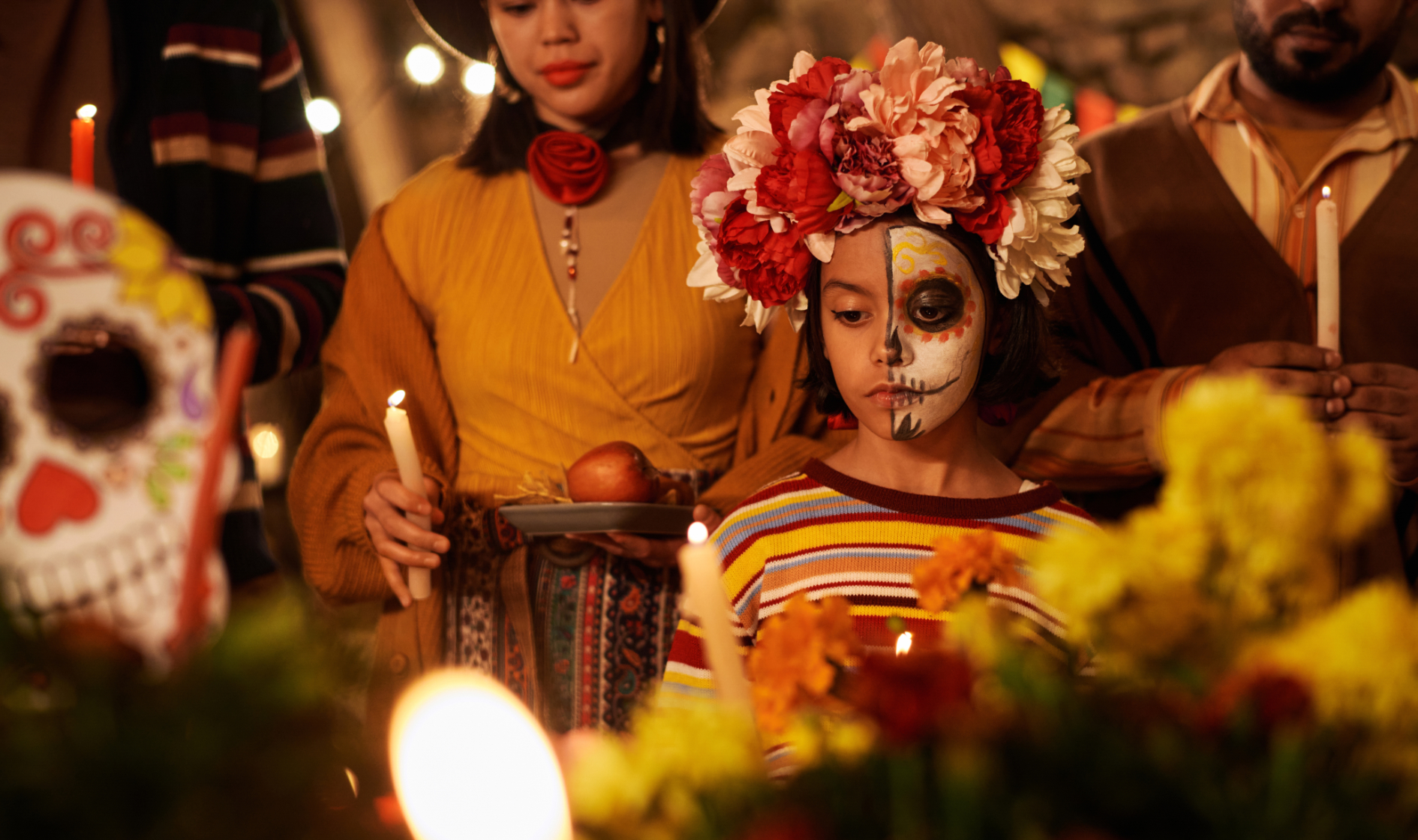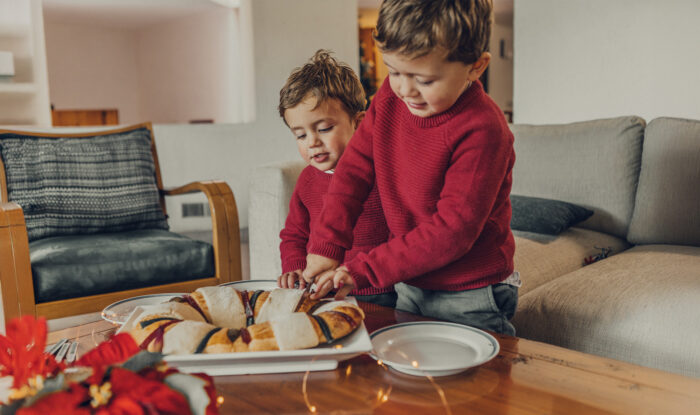The Day of the Dead, or Día de los Muertos, is a celebration that originated in Mexico. This holiday, observed on Nov. 1 and 2, is a time to remember and honor deceased loved ones. Unlike the somber tone often associated with death in Western cultures, Día de los Muertos is a joyous occasion filled with color, music, and cherished memories.
The origins of Día de los Muertos can be traced back to indigenous civilizations of Mexico, who believed that the spirits of the dead returned to the world of the living once a year. When the Spanish arrived, these ancient rituals blended with Catholic traditions, creating the unique holiday we know today.
Central to the celebration are ofrendas, or altars, which families create in their homes and adorn with photos, mementos, and offerings. Families also visit cemeteries to clean and decorate graves, often spending the night telling stories and sharing meals beside their ancestors’ final resting places.
Here are some budget-friendly ideas for honoring your departed loved ones and embracing the spirit of the Day of the Dead:
Create a Simple Ofrenda
You don’t need expensive materials to create an ofrenda. Use items you already have at home, such as:
- A table or shelf covered with a colorful tablecloth
- Framed photos of deceased loved ones
- Candles (battery-operated ones work well too)
- Flowers (marigolds are traditional, but any flowers will do)
- Small mementos or favorite items of the deceased
Make Your Own Paper Decorations
Papel picado, or intricately cut tissue paper banners, are a staple of Day of the Dead decorations. Instead of buying pre-made ones, create your own using colored tissue paper and scissors.
DIY Sugar Skulls
Sugar skulls are iconic symbols of Día de los Muertos. While you can buy them, making your own can be a fun and cost-effective activity. You’ll need:
- Sugar
- Water
- Meringue powder
- Skull molds (available at craft stores or online)
Mix the ingredients, press into molds, and let dry. Decorate with royal icing made from powdered sugar and egg whites.
Cook Traditional Foods at Home
Instead of buying pre-made treats, prepare some traditional foods at home. Pan de muerto (bread of the dead) is a sweet bread that’s relatively simple to make. Other options include tamales, mole, or your loved ones’ favorite dishes.
Host a Potluck Celebration
Consider hosting a potluck. Ask each guest to bring a dish that was a favorite of one of their deceased loved ones. This not only saves money but also adds a personal touch to the gathering.
Visit a Local Cemetery
Many communities host Day of the Dead events at local cemeteries. These are often free to attend and provide a chance to experience the tradition firsthand. Bring flowers or candles to place on graves, even if you don’t have loved ones buried there.
Face Painting Instead of Costumes
Instead of buying expensive costumes, use face paint to create traditional Day of the Dead skull designs. You can find affordable face paint kits at most party supply stores, or even use makeup you already have at home.
Create a Memory Box
As an alternative to an ofrenda, create a memory box filled with photos, trinkets, and written memories of your loved ones. This can be a meaningful and portable way to honor the deceased.
Have a Movie Night
Many films explore the themes and traditions of Día de los Muertos. Host a movie night featuring films like “Coco” or “The Book of Life.” Pop some popcorn and invite friends to join you for a cozy evening.
Participate in Community Events
Many cities and towns host free Day of the Dead events, including parades and art exhibitions. Check your local community calendar for opportunities to participate without spending money.
Remember, the essence of Día de los Muertos is about remembering and honoring loved ones who have passed on. The most important aspects of the celebration — love, memory and respect — don’t cost a thing. By focusing on these elements, you can create a budget-friendly Day of the Dead celebration.
DISCLAIMER – This content is for informational purposes only. Pangea and its affiliates do not provide financial, legal, investment or tax advice.




